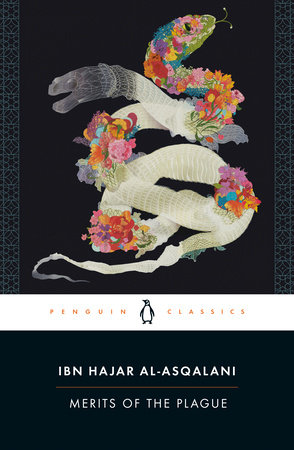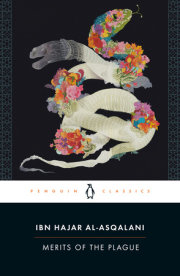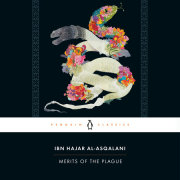The preeminent meditation on plagues and pandemics from the Islamic world, now in English for the first time
A Penguin Classic
Six hundred years ago, the author of this landmark work of history and religious thought—an esteemed judge, poet, and scholar in Cairo—survived the bubonic plague, which took the lives of three of his children, not to mention tens of millions of others throughout the medieval world. Holding up an eerie mirror to our own time, he reflects on the origins of plagues—from those of the Prophet Muhammad’s era to the Black Death of his own—and what it means that such catastrophes could have been willed by God, while also chronicling the fear, isolation, scapegoating, economic tumult, political failures, and crises of faith that he lived through. But in considering the meaning of suffering and mass death, he also offers a message of radical hope. Weaving together accounts of evil jinn, religious stories, medical manuals, death-count registers, poetry, and the author’s personal anecdotes, Merits of the Plague is a profound reminder that with tragedy comes one of the noblest expressions of our humanity: the practice of compassion, patience, and care for those around us.
For more than seventy-five years, Penguin has been the leading publisher of classic literature in the English-speaking world. With more than 2,000 titles, Penguin Classics represents a global bookshelf of the best works throughout history and across genres and disciplines. Readers trust the series to provide authoritative texts enhanced by introductions and notes by distinguished scholars and contemporary authors, as well as up-to-date translations by award-winning translators.






